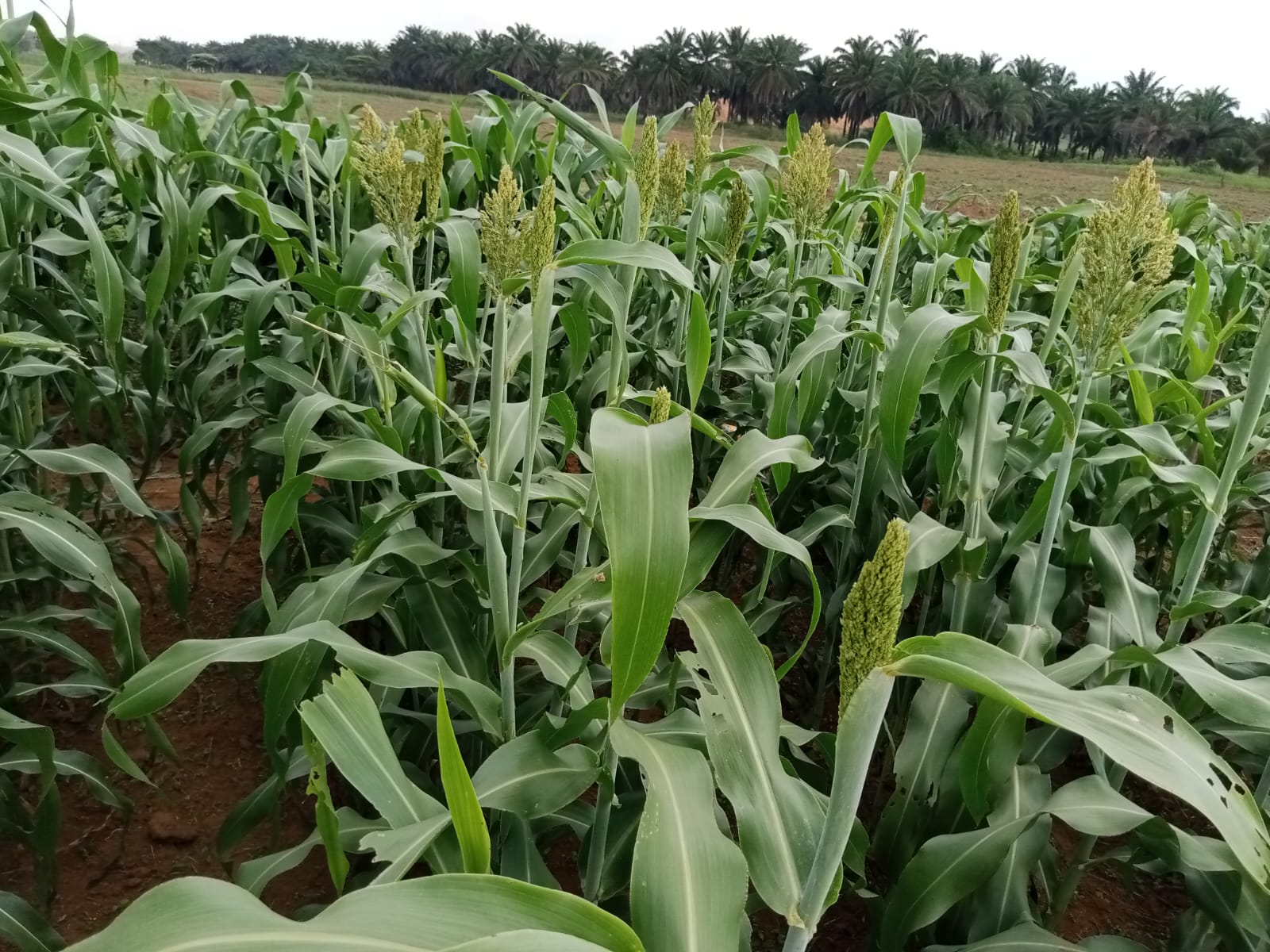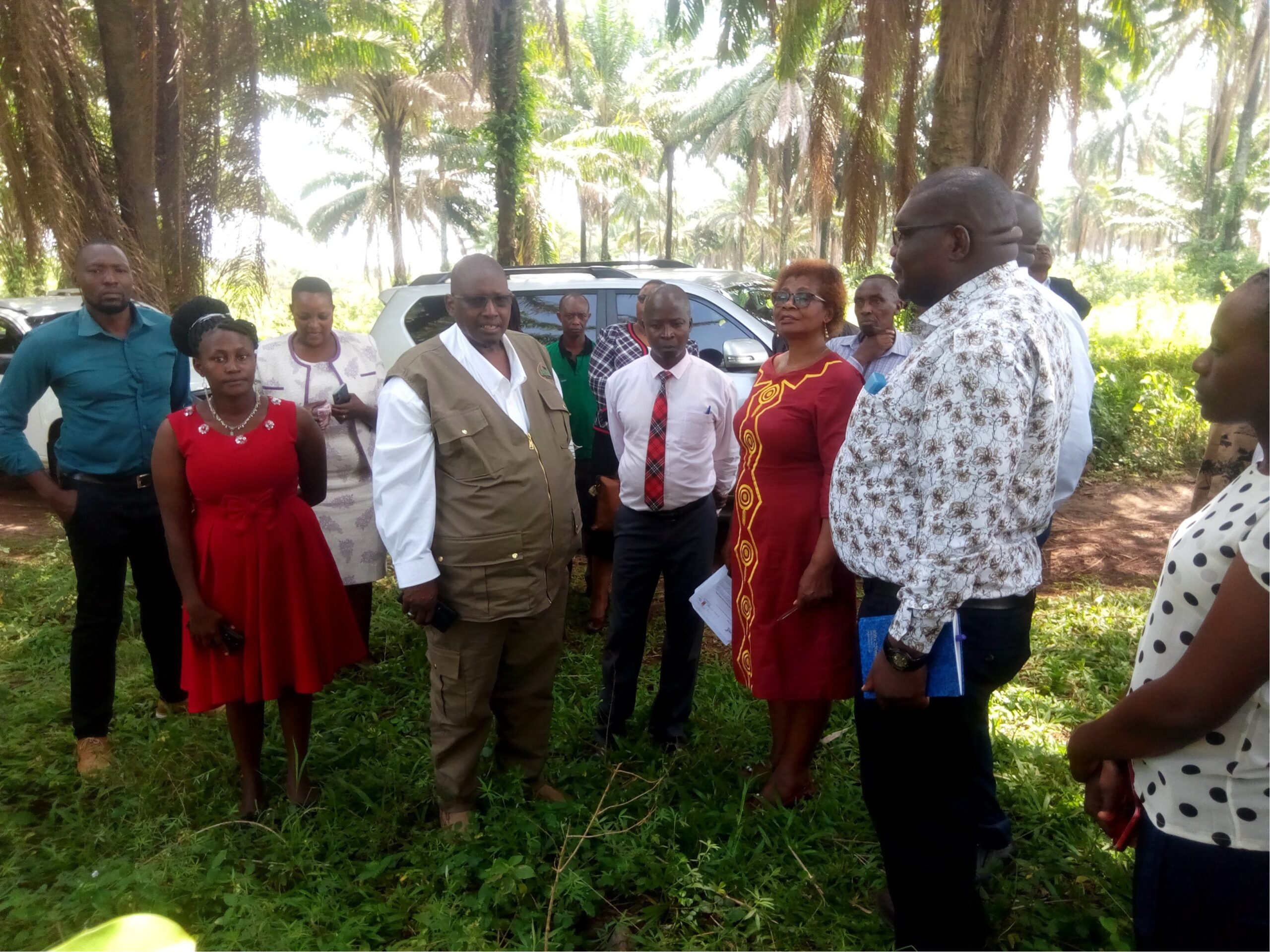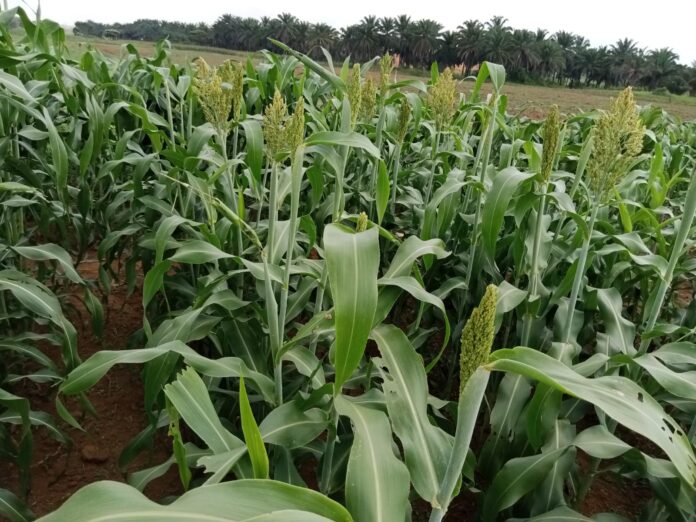By Okong’o Oduya
Busia County, Kenya: The vulnerable and marginalized groups in Busia County have received a donation of seeds to farm indigenous food crops such as sorghum, millet, and cassava.
Through the inclusive Vulnerable and marginalized group farmers’ platform, farmers mostly widows, people living with HIV virus, people living with disabilities, single mothers under 35, youths, and caregivers of infants under 60 months are to benefit. The groups were formed in Teso South and received training and farm imputes to farm millet, sorghum, and Nyota beans.
In a pilot project funded by Kenya Agricultural and livestock research organization, (KALRO), the farmers narrated how their lives have changed since they started practicing farming.
According to Assistant Director Karlo, and Dr. Simon Omondi, they have launched the stakeholder’s platform that seeks to work with special farmers in society who are forgotten and are rarely targeted by other stakeholders in the agricultural sector.
“The farmers we are targeting on this platform are those neglected and marginalized. They include widows, farmers living with HIV/Aids, people living with disabilities, single mothers under 35 years, youths, and as well as caregivers who are looking after infants under 60 months where nutrition is a key challenge,” he noted.

He noted that to achieve sustainable development goals as a country, food and nutrition security and income are important.
“This is quite deliberate that, to achieve sustainable development goals of inclusiveness, we need to target the underprivileged in society. This is a platform where stakeholders are coming together to answer only one question and the question is, can a platform where different stakeholders with different specializations and missions work together to improve the livelihood of the underprivileged?” Paused Dr. Omondi.
“From the study and survey we conducted in all the six groups, we realized that most of them eat one meal per day, and therefore through this project, our target is to bring these families from one to at least three meals per day. In this program, we are going to have activities by different partners that are geared towards entrepreneurship and enable the groups to enhance their income.”
The platform that was launched in Busia is under the piloting stage and they will launch it in Migori County upon its success. It will give room for a large project in the future.
As a way of boosting food production in Busia County, the farmers have been challenged to go back and embrace indigenous food crop farming such as millet, sorghum, and cassava.
According to Director General Kenya Agricultural and Livestock Research Organization (KALRO) Dr. Eliud Kireger, most farmers in the county are into maize farming, although it is not doing well.
He says that the climate in Busia favors millet, sorghum, and cassava farming, and also the crops are pest resistant.
“Busia County is the leading producer of Cassava in Kenya and also produces large quantities of sweet potatoes, sorghum, and millet. Data available shows that farmers in the county have gradually reduced production of these traditional crops and instead preferred maize farming, which is highly susceptible to weather, pests, and diseases and requires a high cost of inputs,” he noted.

He added, “Under climate change conditions we need to revert to the traditional crops which naturally have adapted to this condition, only that they have been improved to produce higher yields and within the shortest time possible.”
“Busia County has two rain seasons, and good arable land suitable for farming, yet it has a widespread prevalence of poverty, which can be partially attributed to the reduced acreage under drought-tolerant traditional crops. This reality should be of great concern to stakeholders in the County including those of us in the agricultural sector.”
According to him, widows, farmers living with disability, farmers living with HIV (support groups), single mothers under 35 years, the youth, and caregivers of infants under 5 years, have not been given sufficient attention in agriculture not only in Kenya but in most of Sub-Saharan Africa (SSA) by policymakers, development partners, research and extension agents, yet they comprise nearly one-quarter of smallholder farmers.
“supporting vulnerable and marginalized farmers to enhance food and nutritional security, incomes, and decision-making through an inclusive stakeholder platform is something that we should all embrace to boost food security in the country,” he noted.














